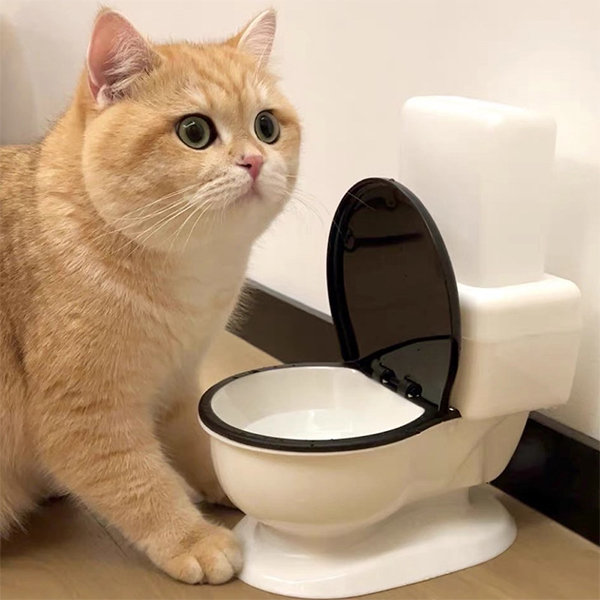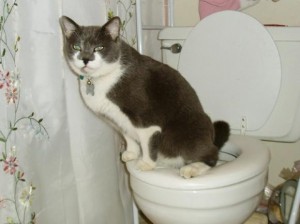Presented here underneath you will find some high-quality news with regards to Don't Flush Your Pets Poo Down The Loo, Vet Warns.

When it concerns getting rid of waste, especially animal waste, many people frequently resort to the convenient alternative of flushing it down the commode. Nonetheless, this seemingly easy remedy can have severe effects for the setting and public health. In this short article, we'll explore why flushing animal waste down the commode is a poor concept and supply alternate techniques for appropriate disposal.
Intro
Appropriate waste disposal is crucial for keeping environmental sustainability and public health. While it might appear safe to flush animal waste down the toilet, it can cause various concerns, both for the atmosphere and human health.
Threats of flushing animal waste
Ecological impact
Flushing pet waste introduces damaging germs and microorganisms right into rivers, which can adversely affect water communities. These microorganisms can contaminate water resources and injury aquatic life, interfering with delicate communities.
Public health issues
Pet waste consists of unsafe microorganisms such as E. coli and Salmonella, which can posture significant health and wellness threats to humans. Flushing pet waste down the bathroom can infect water supplies, causing the spread of illness and infections.
Alternatives to flushing
Instead of flushing pet waste down the toilet, there are numerous alternate disposal methods that are a lot more environmentally friendly and sanitary.
Composting
Composting animal waste is an eco-friendly way to take care of it. By composting, organic matter is broken down right into nutrient-rich dirt, which can be utilized to feed gardens and plants.
Garbage dump disposal
Taking care of animal waste in a land fill is another alternative. While not as environmentally friendly as composting, it is a more secure alternative to flushing, as it stops the contamination of water sources.
Animal waste disposal systems
There are specific pet waste disposal systems offered that safely and hygienically deal with pet waste. These systems usually make use of enzymes to break down waste and remove odors.
Steps to proper pet waste disposal
To make certain proper disposal of pet waste, comply with these actions:
Scooping and bagging waste
On a regular basis scoop and bag pet waste using naturally degradable check here bags. This stops waste from contaminating the setting.
Utilizing marked waste containers
Dispose of bagged animal waste in designated waste bins, such as garden compost containers or land fill bins. Avoid flushing it down the bathroom whatsoever expenses.
Cleaning up litter boxes and pet dog areas on a regular basis
Frequently tidy can and family pet areas to avoid the buildup of waste and microorganisms. Usage pet-safe cleansing items to maintain health.
Benefits of appropriate disposal approaches
Embracing proper disposal techniques for pet waste supplies several benefits:
Minimized environmental pollution
Proper disposal methods minimize the risk of environmental pollution, shielding rivers and environments from contamination
Lessened threat of water contamination.
By staying clear of flushing pet waste down the toilet, the danger of water contamination is dramatically lowered, guarding public health.
Improved sanitation and health
Appropriate disposal approaches promote better sanitation and hygiene, producing a safer atmosphere for both humans and pets.
Final thought
In conclusion, flushing animal waste down the commode is dangerous to the environment and public health. By adopting alternate disposal methods and adhering to proper waste management techniques, we can reduce the unfavorable influence of pet waste and add to a cleaner, much healthier world.
What To Do With Dog Poo – The Do's And Don'ts Of Disposing Of Faeces
Dog poo bins
Some councils provide dedicated dog waste bins in popular dog-walking areas that can take dog poo that has been bagged but you can legally dispose of dog waste in any public litter bin, as long as it is securely bagged. This also applies to your wheelie bin at home.
Do not flush
Water companies do not recommend flushing dog faeces down the toilet because certain parasites can survive the water processing treatment and are potentially harmful to humans. You should also never consider flushing dog poo that has been bagged down the toilet as the bags will not break down and instead create severe blockages in the sewage system.
In the woods
The Forestry Commission promotes a ‘stick and flick’ method for dealing with waste in the woods. This means finding a stick and using it to flick any poo from off the path so that it is out of the way of other walkers. You could also bury it as long as it is not in an area where there might be livestock.
Livestock
Parasites found in dog poo can be transmitted to livestock if they inadvertently eat infected faeces that has been left on grazing land. This could result in the death of sheep or abortion in cattle so you should always make sure you pick up your dog’s waste in fields where livestock could be present.

Frequently tidy can and family pet areas to avoid the buildup of waste and microorganisms. Usage pet-safe cleansing items to maintain health.
Benefits of appropriate disposal approaches
Embracing proper disposal techniques for pet waste supplies several benefits:
Minimized environmental pollution
Proper disposal methods minimize the risk of environmental pollution, shielding rivers and environments from contamination
Lessened threat of water contamination.
By staying clear of flushing pet waste down the toilet, the danger of water contamination is dramatically lowered, guarding public health.
Improved sanitation and health
Appropriate disposal approaches promote better sanitation and hygiene, producing a safer atmosphere for both humans and pets.
Final thought
In conclusion, flushing animal waste down the commode is dangerous to the environment and public health. By adopting alternate disposal methods and adhering to proper waste management techniques, we can reduce the unfavorable influence of pet waste and add to a cleaner, much healthier world.
What To Do With Dog Poo – The Do's And Don'ts Of Disposing Of Faeces
Dog poo bins
Some councils provide dedicated dog waste bins in popular dog-walking areas that can take dog poo that has been bagged but you can legally dispose of dog waste in any public litter bin, as long as it is securely bagged. This also applies to your wheelie bin at home.
Do not flush
Water companies do not recommend flushing dog faeces down the toilet because certain parasites can survive the water processing treatment and are potentially harmful to humans. You should also never consider flushing dog poo that has been bagged down the toilet as the bags will not break down and instead create severe blockages in the sewage system.
In the woods
The Forestry Commission promotes a ‘stick and flick’ method for dealing with waste in the woods. This means finding a stick and using it to flick any poo from off the path so that it is out of the way of other walkers. You could also bury it as long as it is not in an area where there might be livestock.
Livestock
Parasites found in dog poo can be transmitted to livestock if they inadvertently eat infected faeces that has been left on grazing land. This could result in the death of sheep or abortion in cattle so you should always make sure you pick up your dog’s waste in fields where livestock could be present.

As a reader about Why you should never flush dog poop down the toilet, I assumed sharing that piece of writing was a good idea. Do you know about somebody who is enthusiastic about the subject? Please feel free to promote it. Many thanks for your time invested reading it.
Phone